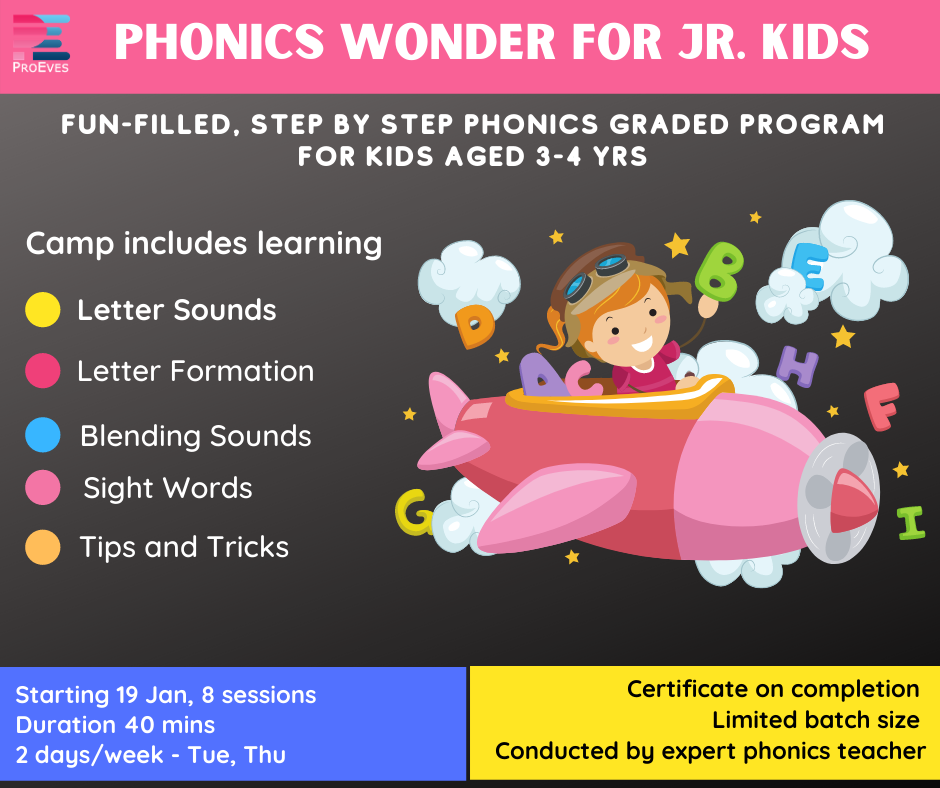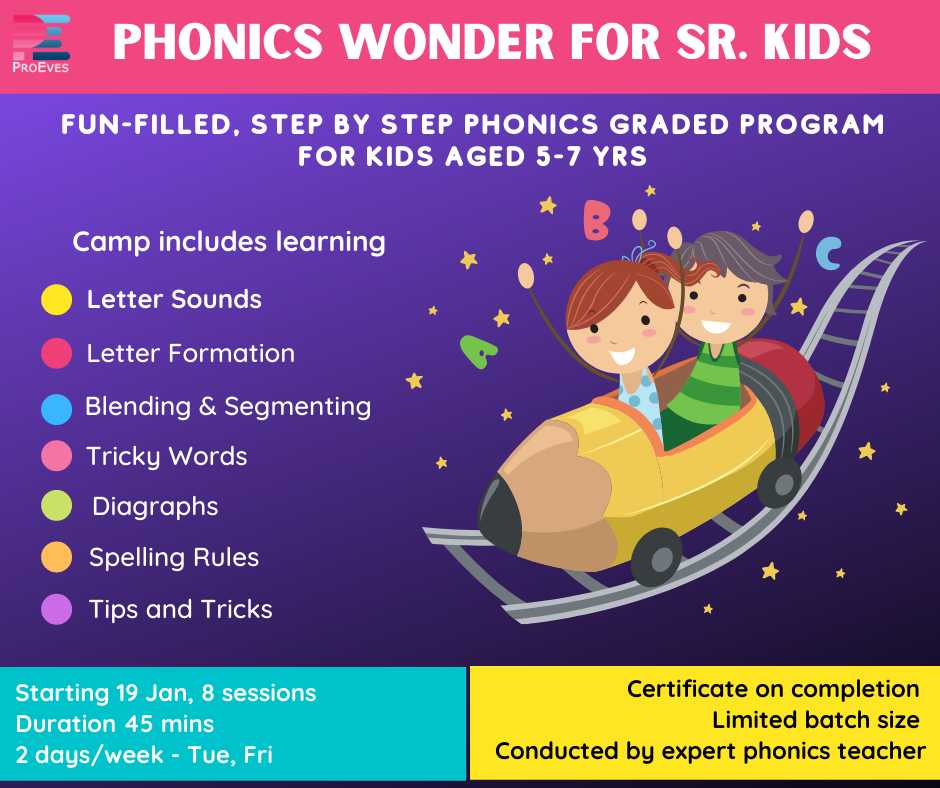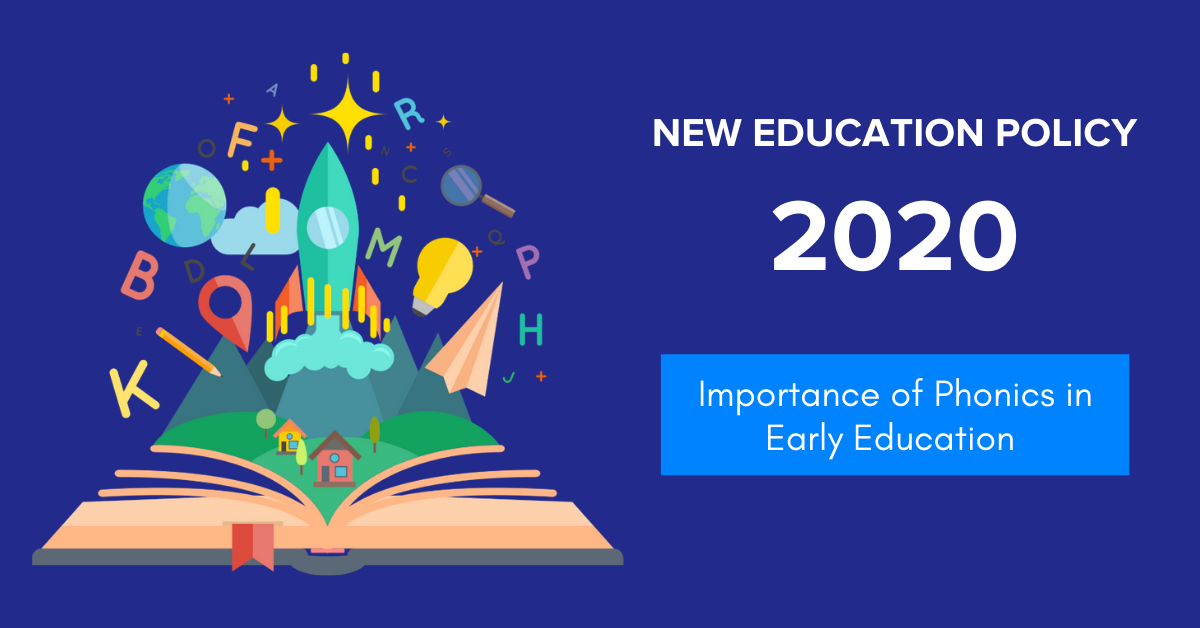Phonics is a great way to simplify the English language. It helps children to start recognising sounds, letters and words. Children move from learning single letter sounds to two letters to making words. It helps them to start reading and improve their language development skills
This National Education Policy 2020 is the first education policy of the 21st century. It focuses on language development and focuses on holistic, integrated, enjoyable and engaging Curriculum and Pedagogy in Schools. NEP points that :
1. The Foundational Stage shall consist of five years of flexible, multilevel, play/activity-based learning and the curriculum and pedagogy of ECCE
2. The key thrust of curriculum and pedagogy reform across all stages will be to move the education system towards real understanding and towards learning how to learn-and away from the culture of rote learning as is largely present today. Phonics focuses on real understanding to help children understand the concept and is not based on rote learning at all.
3. To ensure that all students are school ready, an interim 3-month play-based’ school preparation module’ for all Grade 1 students, consisting of activities and workbooks around the learning of alphabets, sounds, words, colours, shapes, and numbers, and involving collaborations with peers and parents, will be developed by NCERT and SCERTs.
Each parent should focus on teaching phonics to their child to create a life long appreciation of languages to them. It simplifies even a complex language like English.
What is phonics? Why is it important?
We often hear educators say, ‘What children can say today forms the basis for what they can read and write in the future’. But this only tells part of the story.
To read English successfully, children must learn to turn the words they see in a text into sounds, and make sense of these sounds. It is important for children to learn letter-sound relationships because English uses letters in the alphabet to represent sounds.
Phonics teaches this information to help children learn how to read. Children learn the sounds that each letter makes, and how a change in the order of letters changes a word’s meaning. For example, if we don’t pay attention to letter order, words such as ‘dog’ and ‘pat’ might be misread as ‘god’ and ‘tap’ respectively.
Phonics also helps in written language
The phonics approach focuses on analytical skills for breaking the code of written language. Teachers would highlight that, although the words ‘big’, ‘pig’, and ‘dig’ have different onsets (beginning sounds), the three words contain the same rhyme family ‘-ig’. Children would reflect on the shared spelling patterns across the target words. Knowledge of these patterns will help children sound out familiar words, and predict the pronunciation of unfamiliar words
We have two expert led Phonics Camp for children. In each class the concept is taught and reinforced in a fun way through stories, games, videos, flash cards, rhymes, worksheets and resources that reflect our comprehensive approach to teaching phonics. Limited batch size in each camp, starting Tue 19 Jan. A special Makar sankranti offer is on till today.
Phonics Junior Program (Age 3 – 4 years) – Register now: https://www.proeves.com/event/phonics-camp-junior-batch-2-1221

Phonics Senior Program (Age 5 – 7 years) – Register now: https://www.proeves.com/event/phonics-camp-senior-batch-1-1222

Source : British Council

